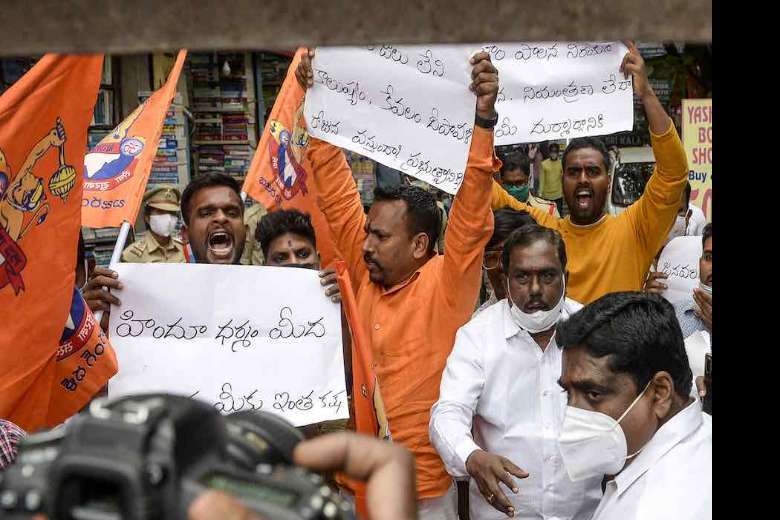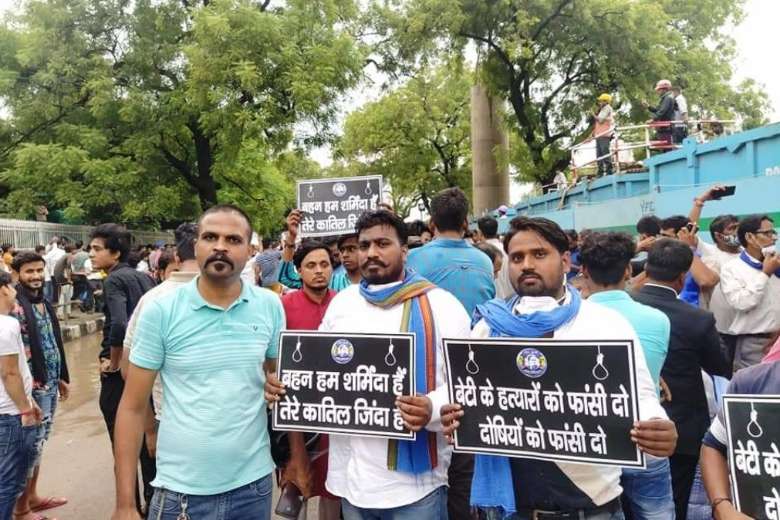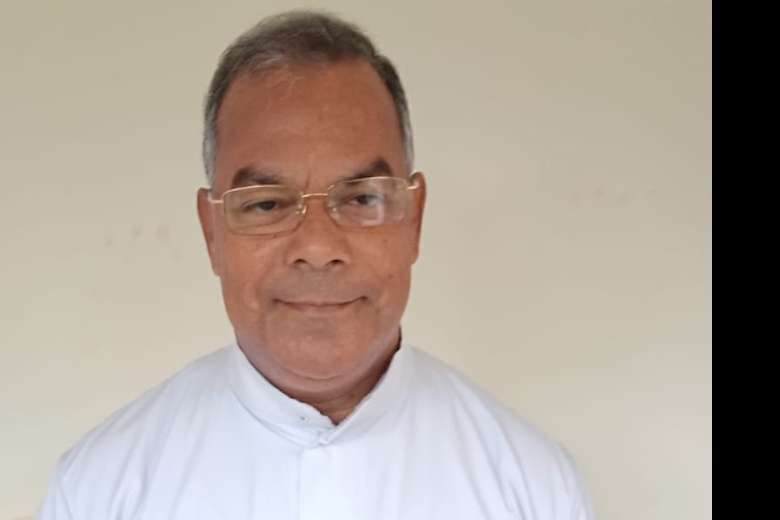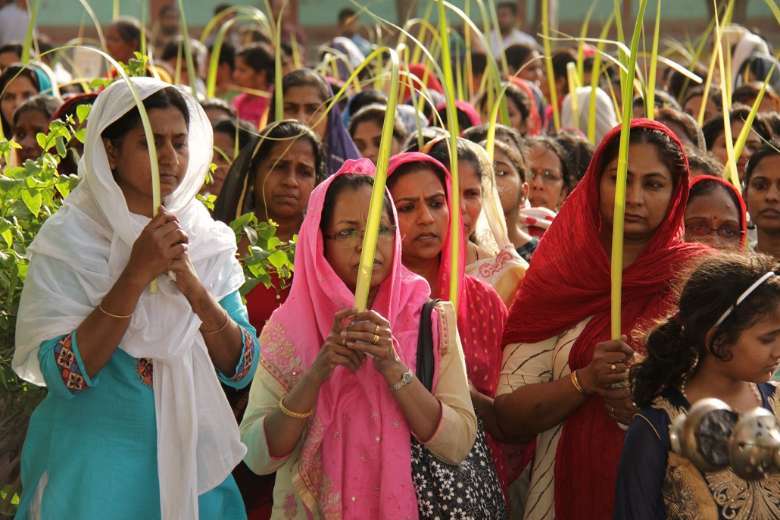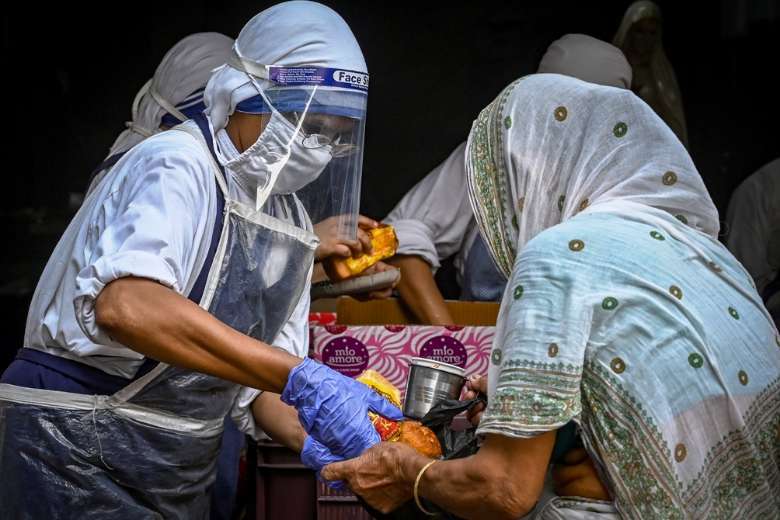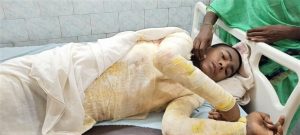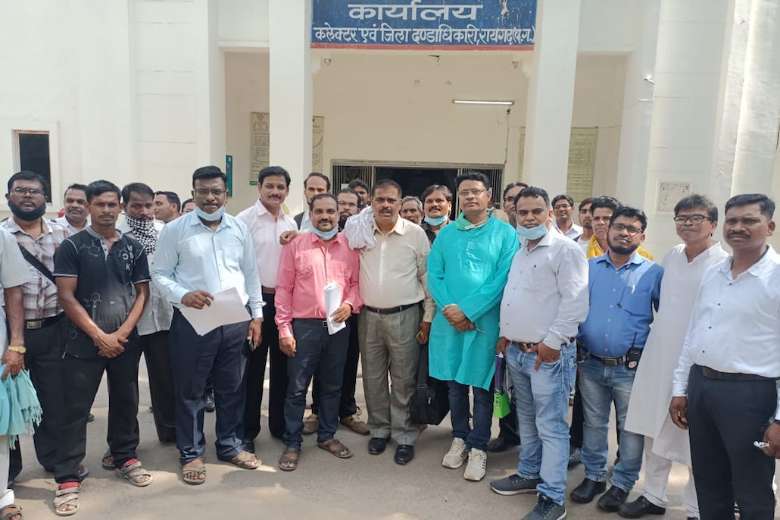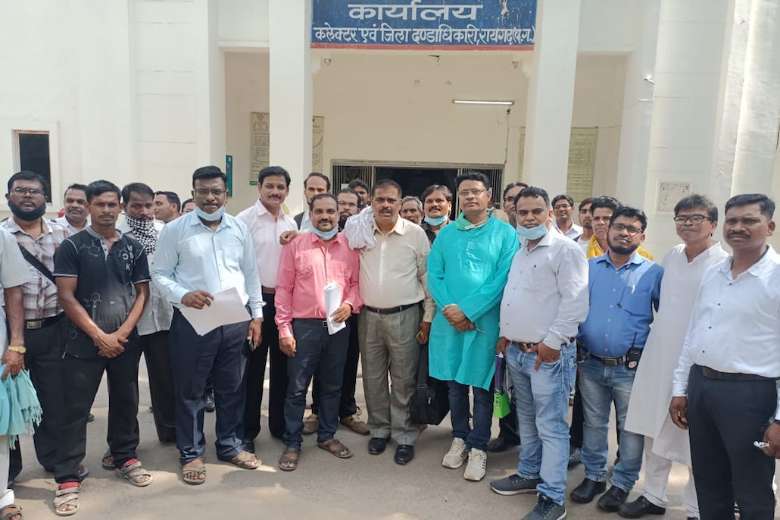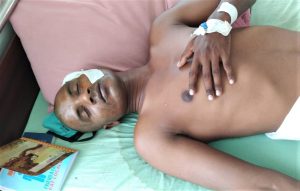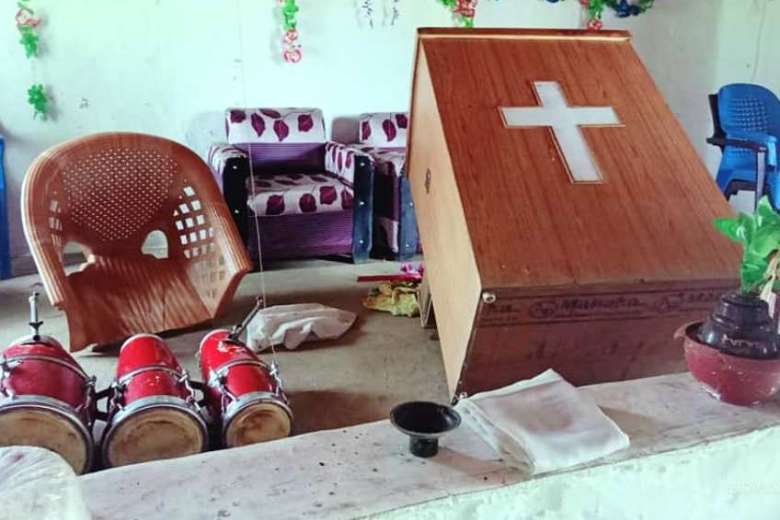Christians decry profiling of faith leaders in central India
STATE AGENCIES TARGET CHRISTIAN LEADERS WORKING AMONG INDIGENOUS COMMUNITIES IN MADHYA PRADESH Christians in Madhya Pradesh state, central India, are outraged after government agencies began profiling Christian religious leaders working among indigenous people. A revenue department official in the tribal-dominated Jhabua district summoned Christian leaders and asked them to provide personal information such as their appointment as a priest and the document related to their conversion. The official letter also asked them to certify if they were converted through allurement or force as the government wants to initiate legal proceedings against illegal conversions. A state law criminalizes religious conversion through allurement or force, making it an offense punishable with up to 10 years in prison. The letter issued on Sept. 13 has also directed them to present details regarding their work in person before the official on Sept. 22 at noon. “Our 16 pastors have received similar letters,” said Auxiliary Bishop Paul Muniya of Protestant Shalom Church in the district. Christian leaders say their people face increased hostilities from right-wing Hindu groups opposed to their work in the district in their work among tribal people. Earlier on Aug. 26, the additional superintendent of police, in a letter to police stations under him directed to assist activists from Vishwa
Crimes against India’s Dalits, tribal people increased in pandemic
DATA SHOWS MORE THAN NINE PERCENT RISE IN CRIMES AGAINST THE SOCIALLY DEPRIVED COMMUNITIES Atrocities against India’s socially poor Dalits and tribal people in the past year despite the extended lockdown and social distancing measures imposed because of the Covid-19 pandemic, data shows. A report of the federal National Crime Records Bureau (NCRB) shows that crimes against Dalits rose from 45,961 cases in 2019 to 50,291 in 2020, an increase of 9.4 percent. In 2018, there were only 42,793 cases. Crimes against tribal people also increased to 8,272 cases in 2020 from 7,570 in 2019, a rise of 9.3 percent. In 2018, such cases were 6,528. This is very unfortunate but am not surprised,” Father Vijay Kumar Nayak, secretary of the Indian Catholic bishops’ office for Dalits and lower classes, told UCA News. He recalled how a nine-year-old Dalit girl was gang-raped and murdered in national capital Delhi within months of the lockdown even as the Indian parliament conducted its monsoon session. “So we can imagine the situation in other parts of the country,” he said. Father Nayak said unless the federal and provincial governments take strict action against the perpetrators of such heinous crimes, the message that everybody is equal before the law will not reach
India’s top court drops case against Catholic priest
September 16, 2021 Father George Mangalapilly, a professor at St. Ephrem’s Theological College in Satna diocese, was charged with converting a Hindu by offering bribe of 5,000 rupees in December 2017. India’s top court has discharged a Catholic priest from a religious conversion case, registered against him in central Indian Madhya Pradesh state three years ago. Father George Mangalapilly, a professor at St. Ephrem’s Theological College in Satna diocese, was charged with converting Dharmendar Dohar, a Hindu, to Christianity by offering him a bribe of 5,000 rupees (some US$70) and other benefits back in December 2017. “Apart from the testimony of the witness, there is nothing else on record which could potentially be relied upon against the appellant,” wrote the top court in its order while discharging the priest from the case. The priest along with his 32 seminarians and another priest were taken into police custody on Dec. 14 as they were on their way to sing Christmas carols while visiting Christian homes, a tradition they followed for decades. The Hindu activists, mostly members of the Bajarang Dal, also blocked officers of the police station and demanded action against the priests and all the seminarians for attempting to convert Hindus and.They also alleged ulterior
Hindu activists disrupt prayer meet in southern India
POLICE FILED A CASE AGAINST CHRISTIAN PASTOR FOR RELIGIOUS CONVERSION ACTIVITIES September 16, 2021. Police in the southern Indian state of Karnataka have filed a case after Hindu activists interrupted a prayer service alleging the pastor of religious conversion activities. According to police in the coastal town of Karkala in Udupi district, more than 35 activists of Hindu Jagaran Vedike barged into Pastor Benedict’s house last Friday and stopped the prayer service. Police have registered a case against Hindu activists on charges of unlawful assembly, rioting, intentional insult, criminal intimidation and voluntarily causing hurt based on the complaint filed by Pastor Benedict. Pastor Benedict in his complaint to the police also has alleged that the Hindu activists misbehaved with women inside the church, so the police have also registered a case of assaulting or using criminal force on women.However, police have also booked Pastor Benedict for deliberate and malicious acts intended to outrage religious feelings and uttering words with deliberate intent to wound the religious feelings of any person.“The area at the church in Kukkandur village is quite tense now but the administration has made adequate arrangements for the security for the local people and it is constantly monitored by the higher authorities,” George
India’s Supreme Court to hear plea against curbs on foreign funding
CATHOLIC CHURCH IS ONE OF THE BENEFICIARIES OF CONTRIBUTIONS FROM FOREIGN SOURCES FOR ITS CHARITY WORKS September 14, 2021. India’s top court has agreed to examine amendments made to a federal law that regulates foreign funding into the country after non-government organizations (NGOs) argued the changes hampered charity work. The Supreme Court, however, refused to stay the implementation of the law--Foreign Contribution Regulation (Amendment) Act (FCRA), 2020. A three-member bench headed by Justice A. M. Khanwilkar on Sept. 7 admitted the petitions challenging stringent provisions of the amended FCRA and directed the federal government to file its response within three weeks. The next hearing is on Oct. 5 The Catholic Church is one of the beneficiaries of foreign funds and donations for its charity works across the country. The petitioners, Noel Harper and Nigel Mills of Share and Care Foundation in Andhra Pradesh, and Sister Lissy Joseph and Annamma Joachim of the National Workers Welfare Trust in Telangana, said the amendments had severely restricted the use of foreign funds to serve the poor and needy. This coupled with an official government diktat to open bank accounts in the designated branch of an Indian multinational public sector bank in New Delhi latest by June 30, 2021, had
Christian Boy, 14, Clinging to Life after Burn Attack in Eastern India
Hindu extremists opposed his faith.A 14-year-old Christian boy in eastern India is fighting for his life a month after suspected Hindu extremists threw flammable liquid on him and set him on fire, sources said. “He is very, very critical,” said Dr. K.N. Tiwari of the burn unit of Appolo Burn Hospital in Patna, Bihar state. “His survival chances are low.” On Aug. 11 three unidentified men on a motorbike threw the liquid on Nitish Kumar as he was returning home to Bihar state’s Kamta Nagar village, Gaya District, from his early morning routine of purchasing fresh vegetables. Drenched, Nitish initially thought they had mischievously thrown water on him, he said. “But soon my skin began to burn,” Nitish told Morning Star News, in agony. “The burning sensation increased with every passing second. I dropped the basket and ran towards my house [750 meters away] screaming and howling.” The motorbike did not stop, and in his pain he had no way of trying to see its license plate, he said. The fire burned 65 percent of his body, with 15 percent deep burns, said Sushma Sharma, a hospital volunteer treating Kumar. Pastor Rajkumar Bharati, also known as Began Mochi, head of the church the Kumar family
Another pastor attacked in central Indian state of Chhattisgarh
September 06, 2021 Another pastor attacked in central Indian state.Christian leaders submit a memorandum to Chhattisgarh’s district collector and chief minister on Sept. 2 informing them about Christian persecution in the state. A pastor and two of his companions in the central Indian state of Chhattisgarh were attacked inside a police station after being accused of religious conversion — the second such incident in the space of a week. The latest attack by Hindu activists was reported on Sept. 5 at Purani Basti police station in the Bhatagaon area. According to police, Pastor Harish Sahu was called to the police station over complaints of forced religious conversions being carried out by him in the area. Several Hindu activists visited the police station while Pastor Sahu along with Prakash Masih and Chhattisgarh Christian Forum general secretary Ankush Bariyekar were there. The activists accused Pastor Sahu of indulging in religious conversion and manhandled and abused the trio. A video of the incident has surfaced on social media. After the incident, Bariyekar lodged a complaint with police and several people were booked for rioting, obscene acts and songs, voluntarily causing hurt and criminal intimidation. Who gave permission to Hindu fundamentalists to take the law into their own hands? “It is
Another pastor attacked in A central Indian state
THREE CHRISTIANS ARE MANHANDLED AND ABUSED IN A CHHATTISGARH POLICE STATION OVER ACCUSATIONS OF RELIGIOUS CONVERSION September 6, 2021. A pastor and two of his companions in the central Indian state of Chhattisgarh were attacked inside a police station after being accused of religious conversion — the second such incident in the space of a week. The latest attack by Hindu activists was reported on Sept. 5 at Purani Basti police station in the Bhatagaon area. According to police, Pastor Harish Sahu was called to the police station over complaints of forced religious conversions being carried out by him in the area. Several Hindu activists visited the police station while Pastor Sahu along with Prakash Masih and Chhattisgarh Christian Forum general secretary Ankush Bariyekar were there. The activists accused Pastor Sahu of indulging in religious conversion and manhandled and abused the trio. A video of the incident has surfaced on social media. After the incident, Bariyekar lodged a complaint with police and several people were booked for rioting, obscene acts and songs, voluntarily causing hurt and criminal intimidation. It is a matter of concern for all of us as attacks on Christian people are reported very often here,” Archbishop Victor Henry Thakur of Raipur told UCA News. “The
Hard-Line Hindus Beat Christian Unconscious in Tamil Nadu, India
Neighbors attack after seeing church leader visit him.A Christian in southern India’s Tamil Nadu state is in hiding after hard-line Hindu neighbors beat him unconscious with iron rods last month, sources said. Santosh Kumar, 35, left his home on Aug. 1 shortly after a church elder visited him in Kamaraj Nagar, Karur District. A Hindu neighbor who saw the elder visit him intercepted Kumar on the road shortly thereafter. “He started shouting at me, ‘Are you a Christian? Why are Christians visiting you?’” Kumar told Morning Star News. Kumar said the neighbor was drunk, and that he asked him, “What is your problem?” before going on his way, but the Hindu stopped him again and began shouting more loudly. Telling Kumar that India was a Hindu country, he asked the Christian why he still lived there, as Kumar asked him to please let him go on his way. “He threatened that he would murder me if I did not vacate my rented house immediately,” Kumar said. Soon two other area Hindus arrived on motorcycles and dragged him to bushes far from the road, he said. “Two persons were ready with iron rods there,” he told Morning Star News. “Two of them held me up while the
Attacks on Christians go unpunished in Indian state
CHHATTISGARH CHRISTIAN FORUM HAS DOCUMENTED MORE THAN 200 ATTACKS ON THE STATE'S MINORITY COMMUNITY IN THE PAST TWO YEARS August 30, 2021. A Christian leader in the central Indian state of Chhattisgarh has accused the state government of inaction after six incidents of Christian attacks were reported within a week. The latest attack was reported from a remote village in Kabirdham district on Aug. 29. More than 100 Hindu activists beat up a pastor after barging into his house during a prayer service, said Mohit Garg, superintendent of police for the district. The mob also manhandled Pastor Kawalsingh Paraste’s family members and vandalized the house, damaging scriptures, articles of worship and household items, before fleeing. The incident occurred in Polmi village around 11am when the Sunday prayer service was underway, Garg said. “It is very unfortunate that we have witnessed repeated attacks on our Christian brothers and sisters last week. But it is nothing new. We have documented more than 200 such incidents in the state during the past two years,” Chhattisgarh Christian Forum president Arun Pannalal told UCA News. He said what was more unfortunate was that every time the government would try to play down the incidents and push for a compromise between





